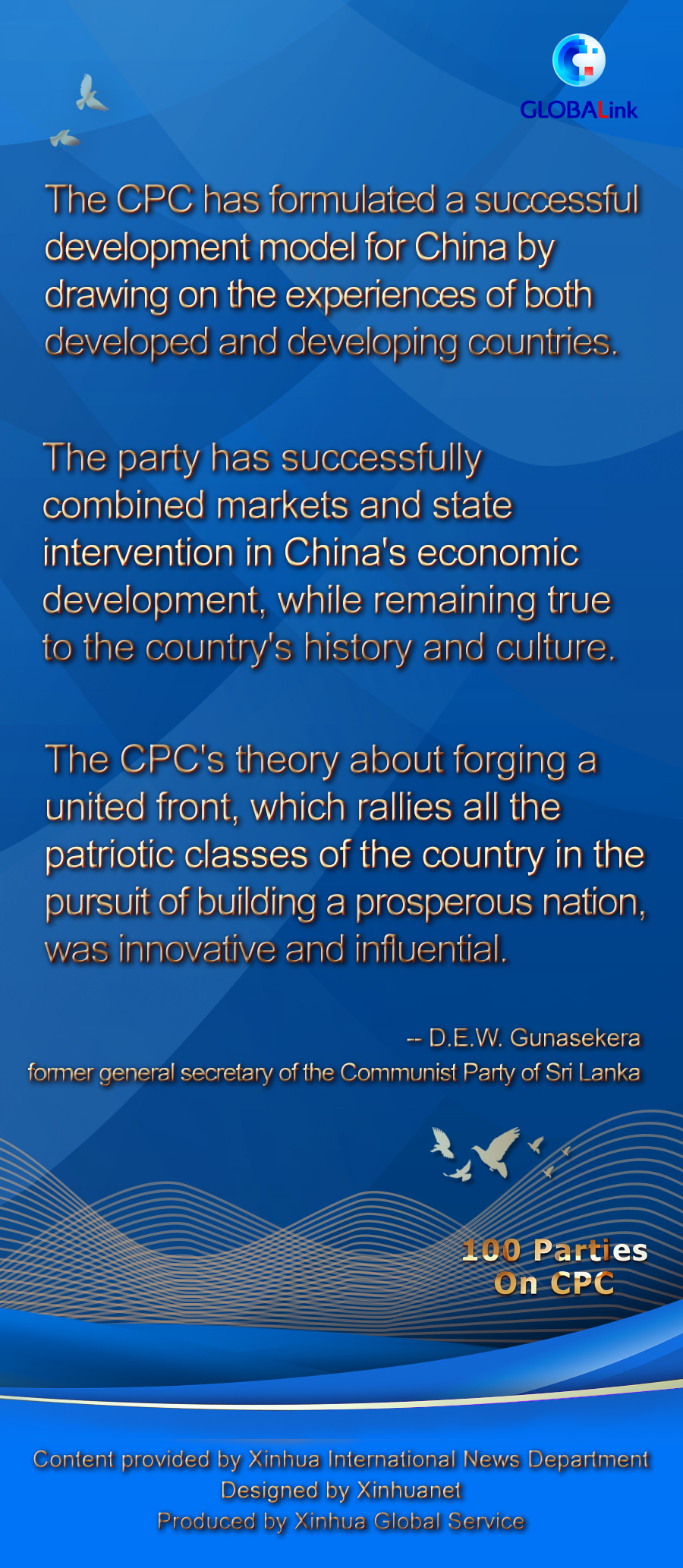Socialism with Chinese characteristics enriches Marxist theory, says former Sri Lankan party chief
by Shiran Illanperuma
COLOMBO -- The Communist Party of China (CPC) has made valuable contributions to Marxist theory by achieving China's development over the 100 years since its founding, a veteran Sri Lankan communist leader has said.
Former General Secretary of the Communist Party of Sri Lanka (CPSL) D.E.W. Gunasekera, in an interview with Xinhua, conveyed his greetings to the CPC on its 100th anniversary and hailed the party's historic achievements.
The CPC has formulated a successful development model for China by drawing on the experiences of both developed and developing countries, Gunasekera said, noting the party has successfully combined markets and state intervention in China's economic development, while remaining true to the country's history and culture.
"Socialism with Chinese characteristics relates to the concrete conditions existing in China," said Gunasekera.
Gunasekera added that the CPC's theory about forging a united front, which rallies all the patriotic classes of the country in the pursuit of building a prosperous nation, was innovative and influential.

"The theory of the united front is one of the biggest theoretical contributions of the CPC, and one that was brought into the strategy of the CPSL," he said.
The CPC's adherence to peaceful coexistence is another theoretical contribution, which has provided China with the stability needed for rapid development, he said, stressing that under the leadership of the CPC, China has made long strides in diplomacy and peacebuilding.
Referring to the Belt and Road Initiative as a case in point, he said it will enable greater global cooperation and multipolarity.
"I observe that the CPC always tries to be objective. That is fundamental in Marxist analysis," he noted, adding that with the eradication of absolute poverty, the CPC is now on track to achieve its new goals.
Video reporter: Tang Lu; video editor: Yang Zhixiang
























